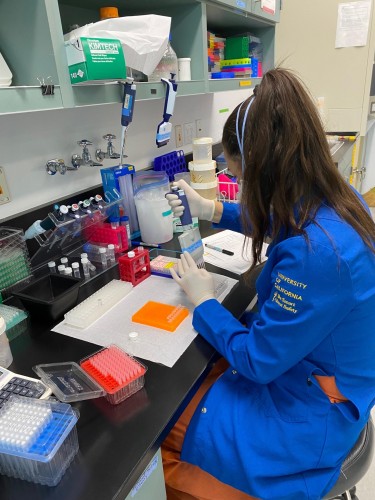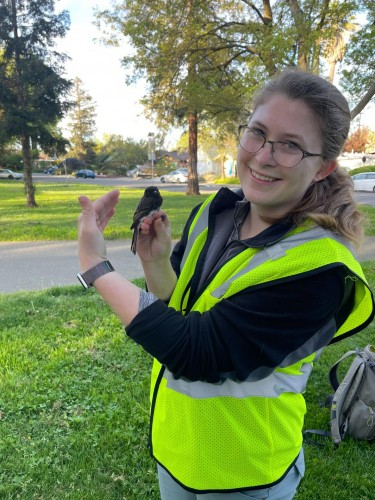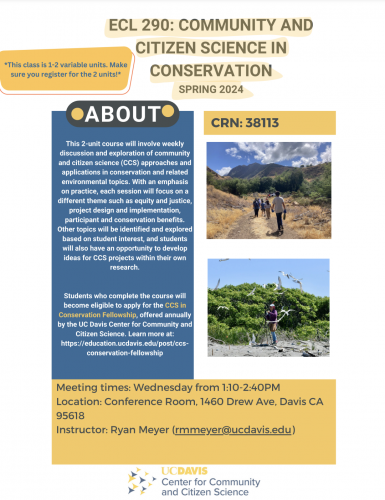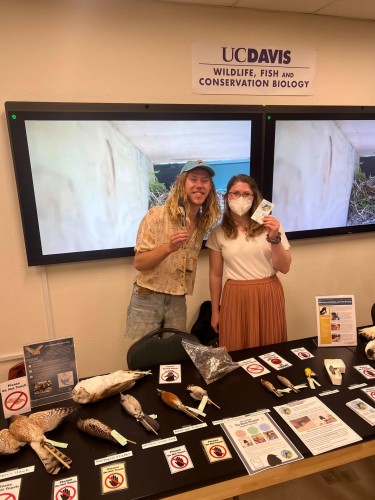CCS Student Opportunities
ECL290: A Course On Community And Citizen Science In Conservation
This 2-unit course will involve weekly discussion and exploration of community and citizen science (CCS) approaches and applications in conservation and related environmental topics. With an emphasis on practice, each session will focus on a different theme such as equity and justice, project design and implementation, participant and conservation benefits. Other topics will be identified and explored based on student interest, and students will also have an opportunity to develop ideas for CCS projects within their own research.
Community and Citizen Science in Conservation Course
 The Center for Community and Citizen
Science offers a 2-unit ”Community and Citizen Science
in Conservation” course at UC Davis. The course involves
weekly discussion and exploration of community and citizen
science (CCS) approaches and applications broadly related to
conservation. With an emphasis on recent academic literature,
each session focuses on a different topic such as
equity and justice, project design and implementation, and
participant and conservation benefits. Other topics are
identified and explored based on student interest. This course
allows students to develop ideas for CCS projects within
their own research.
The Center for Community and Citizen
Science offers a 2-unit ”Community and Citizen Science
in Conservation” course at UC Davis. The course involves
weekly discussion and exploration of community and citizen
science (CCS) approaches and applications broadly related to
conservation. With an emphasis on recent academic literature,
each session focuses on a different topic such as
equity and justice, project design and implementation, and
participant and conservation benefits. Other topics are
identified and explored based on student interest. This course
allows students to develop ideas for CCS projects within
their own research.
 Students who complete the course
are eligible to apply for the CCS in Conservation
Fellowship, offered annually by the UC Davis Center for
Community and Citizen Science.
Students who complete the course
are eligible to apply for the CCS in Conservation
Fellowship, offered annually by the UC Davis Center for
Community and Citizen Science.
If you have any questions, please contact Ryan Meyer, rmmeyer@ucdavis.edu, or Todd Harwell, taharwell@ucdavis.edu.















